 1999 Mercedes-Benz E-class (W210, facelift 1999) Dimensions, Size & Specs
1999 Mercedes-Benz E-class (W210, facelift 1999) Dimensions, Size & SpecsMeasurements of the 1999 Mercedes-Benz E-class, engineered for optimal performance and comfort
| Dimensions | |
|---|---|
| Length: | 4818 mm189.7 in15.8 ft |
| Width: | 1799 mm70.8 in5.9 ft |
| Width (Opened Mirrors): | 1985 mm78.1 in6.5 ft |
| Height: | 1411-1455 mm55.6-57.3 in4.6-4.8 ft |
| Trunk Capacity: | 520 liter18.4 cu ft |
| Trunk Capacity (Max): | 520 liter18.4 cu ft |
| Weight Specifications | |
| Curb Weight: | 1510-1770 kg3329-3902 lbs |
| Maximal permitted Weight: | 2010-2280 kg4431-5027 lbs |
| Roof Load: | 100 kg220 lbs |
| Tire Specifications | |
| Rims Sizes: | 15-inch rims:
|
| Tire Sizes: |
|
The Mercedes-Benz E-class (W210 facelift) introduced in 1999 and produced until 2002 is a refined iteration of the highly regarded W210 generation sedan. It offers a strong blend of traditional luxury and advanced engineering typical of the Mercedes mid-size segment at that time. With a length of 4818 mm (189.6 inches) and a width of 1799 mm (70.8 inches), the vehicle balances an elegant presence with practical dimensions for an executive sedan. When mirrors are opened, the width extends to 1985 mm (78.1 inches). The height varies between 1411 mm and 1455 mm (55.6 to 57.3 inches), contributing to a coupe-like silhouette while providing comfortable headroom. Curb weight ranges from 1510 kg to 1770 kg (3329 to 3903 lbs), depending on equipment and configuration, supporting a substantial maximum weight capacity of 2010 to 2280 kg (4431 to 5030 lbs). This weight class ensures a stable, smooth ride with a focus on safety and comfort. The luggage capacity stands out with 520 liters (18.35 cubic feet), maintaining its roomy trunk space even when rear seats are folded, which makes it practical for everyday use as well as longer journeys requiring ample cargo space. The roof load capacity is rated at 100 kg (220 lbs), allowing for roof racks and additional luggage carry options. The Mercedes-Benz E-class W210 facelift supports various tire and rim combinations to suit driver preferences and performance needs, including rims ranging from 15 to 18 inches and tire widths from 205 mm up to 265 mm. Overall, the 1999-2002 E-class W210 facelift sedan encapsulates a strong balance of size, luxury, and versatile performance fitting the expectations of its segment while preserving the classic Mercedes-Benz ethos.
Discover the standout features that make the 1999 Mercedes-Benz E-class a leader in its class
Have a question? Please check our knowledgebase first.
The Mercedes-Benz E-class W210 facelift (1999-2002) sedan measures 4818 mm (189.7 inches) in length, 1799 mm (70.8 inches) in width without mirrors, and between 1411 mm to 1455 mm (55.6 to 57.3 inches) in height depending on the variant. When the side mirrors are opened, the width expands to 1985 mm (78.1 inches). These dimensions offer a balanced size that provides spacious comfort inside while maintaining manageable exterior proportions suitable for various driving environments.
The curb weight of the Mercedes-Benz E-class W210 facelift ranges from 1510 kg to 1770 kg (approximately 3329 to 3902 pounds), depending on the engine and equipment options. The maximum permissible weight (gross vehicle weight rating) varies between 2010 kg and 2280 kg (4432 to 5027 pounds). This weight range reflects the car’s robust construction and luxury features, ensuring both safety and ride comfort. It also impacts fuel consumption and handling characteristics, with heavier models possibly offering enhanced stability.
The luggage capacity of the 1999-2002 Mercedes-Benz E-class W210 facelift sedan is rated at 520 liters (approximately 18.35 cubic feet) with the rear seats in their upright position. However, folding the rear seats does not increase the luggage capacity beyond this figure since the E-class sedan’s trunk is a separate enclosed compartment rather than a hatchback or estate-style layout. The trunk size is generous for its class, allowing for practical storage of everyday luggage or shopping bags, consistent with executive sedan expectations.
The Mercedes-Benz E-class W210 facelift supported a range of tire and rim sizes tailored to different trims and driving preferences. Rims ranged from 15 inches up to 18 inches, including sizes such as 7J x 15, 7.5J x 15, 7.5J x 16, 7.5J x 17, 9J x 18, and 8J x 18. Corresponding tire sizes included 205/65 R15, 205/65 R16, 215/55 R16, 235/45 R17, 265/35 R18, and 235/40 R18. This variety allowed owners to choose between comfort-oriented setups with higher profile tires or sportier options with wider, lower-profile tires for better grip.
The slight variation in height between 1411 mm and 1455 mm for the W210 facelift E-class depends on model specifics such as suspension type, tire size, and optional equipment. Lower variants tend to sit closer to the ground, enhancing aerodynamics and a sportier look, whereas higher models might offer additional ground clearance for comfort or practicality. This height flexibility influences the vehicle's road presence and can affect ease of entry/exit, headroom inside the cabin, and parking clearance, catering to diverse driver preferences.
A standard residential garage typically measures about 2400 mm to 2700 mm (94 to 106 inches) in width and 4800 mm to 6000 mm (189 to 236 inches) in length. With the W210 facelift E-class being 4818 mm (189.7 inches) long and 1985 mm (78.1 inches) wide with mirrors extended, it fits lengthwise comfortably, but the width with mirrors folded (1799 mm / 70.8 inches) is more compatible with tighter garages. Drivers should take care when parking in garage spaces on the narrower side to avoid mirror damage. Overall, it fits well in a standard garage, though cautious maneuvering is advised.
The facelifted W210 E-class (1999-2002) retained a very similar footprint to the pre-facelift W210 (1995-1999) generation, with minor dimensional updates primarily to the exterior styling and aerodynamics. Both generations share the same length of around 4818 mm (189.7 inches) and width close to 1799 mm (70.8 inches) without mirrors. However, the facelift slightly refined the height and widened some track widths for better stability. These subtle changes improved overall driving dynamics, fuel efficiency, and modernized appearance without significantly altering the car’s fundamental size characteristics.
Dimensionally, the 1999-2002 Mercedes-Benz E-class W210 facelift fits squarely within the mid-size luxury sedan segment. Its length of 4818 mm (189.7 inches) is comparable to competitors like the BMW 5 Series (E39) and Audi A6 (C5), which are similarly sized around 4800-4900 mm in length. The width of approximately 1799 mm (70.8 inches) is competitive, offering ample interior space without the bulkiness of full-size sedans. The E-class is often praised for balancing external dimensions to provide both comfortable cabin room and ease of maneuverability in urban conditions relative to its peers.
The 1999-2002 Mercedes-Benz E-class W210 facelift supports a roof load capacity of 100 kg (220 pounds). This means that you can safely place roof racks, storage boxes, bikes, or luggage weighing up to this limit on the vehicle’s roof without risking damage or affecting stability. Drivers should always distribute weight evenly and secure loads properly to maintain safe handling. This roof load capability is sufficient for most common roof rack accessories used during travel or daily activities and enhances the vehicle’s versatility for carrying bulky items beyond the sedan’s trunk space.
The 1999 Mercedes-Benz E-class W210 facelift brought several important updates to an already successful model line. Key changes included redesigned front and rear bumpers, updated headlights with clear lenses improving night visibility, and a modernized grille. Suspensions were fine-tuned for better ride comfort and handling. Inside, the facelift included upgraded materials and improved instrumentation for a more premium cabin environment. Mechanically, some engine and transmission improvements enhanced performance and efficiency. Overall, it was a refinement that balanced classic Mercedes solidity with a more contemporary appearance and technology.
Discover similar sized cars.

| Production: | 2000-2001 |
|---|---|
| Model Year: | 2000 |
| Length: | 4800-4815 mm189.0-189.6 in |
| Width: | 1785-1795 mm70.3-70.7 in |
| Height: | 1430-1490 mm56.3-58.7 in |
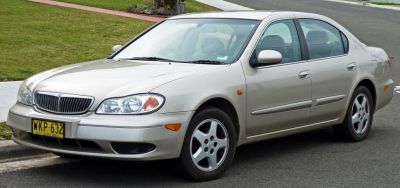
| Production: | 1999-2004 |
|---|---|
| Model Year: | 1998 |
| Length: | 4785 mm188.4 in |
| Width: | 1780 mm70.1 in |
| Height: | 1440 mm56.7 in |
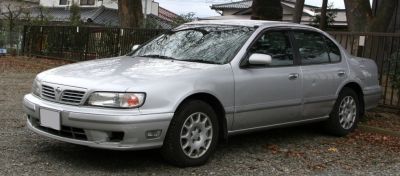
| Production: | 1994-1999 |
|---|---|
| Model Year: | 1994 |
| Length: | 4760 mm187.4 in |
| Width: | 1770 mm69.7 in |
| Height: | 1410 mm55.5 in |
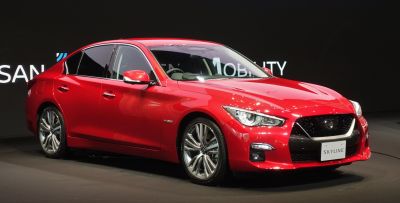
| Production: | 2017-2019 |
|---|---|
| Model Year: | 2017 |
| Length: | 4810 mm189.4 in |
| Width: | 1820 mm71.7 in |
| Height: | 1440-1450 mm56.7-57.1 in |

| Production: | 2014-2017 |
|---|---|
| Model Year: | 2014 |
| Length: | 4790 mm188.6 in |
| Width: | 1820 mm71.7 in |
| Height: | 1440-1450 mm56.7-57.1 in |
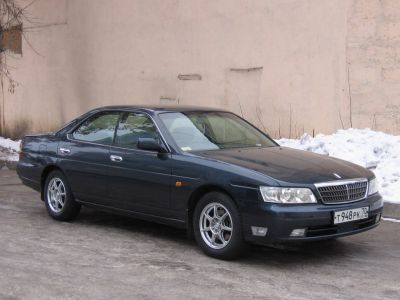
| Production: | 1997-2002 |
|---|---|
| Model Year: | 1997 |
| Length: | 4765 mm187.6 in |
| Width: | 1730 mm68.1 in |
| Height: | 1400 mm55.1 in |
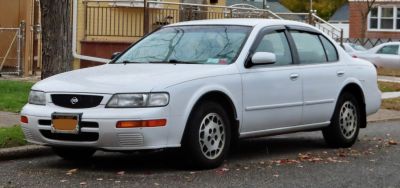
| Production: | 1995-2000 |
|---|---|
| Model Year: | 1995 |
| Length: | 4770 mm187.8 in |
| Width: | 1770 mm69.7 in |
| Height: | 1420 mm55.9 in |
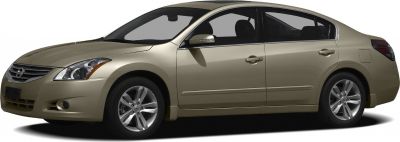
| Production: | 2007-2012 |
|---|---|
| Model Year: | 2007 |
| Length: | 4821 mm189.8 in |
| Width: | 1796 mm70.7 in |
| Height: | 1471 mm57.9 in |
